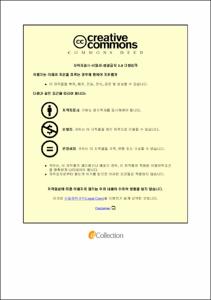한방간호사를 위한 한방간호 직무교육 프로그램 구성
- Alternative Title
- Configuration of Oriental Nursing Job Training Program for Oriental Nurses
- Abstract
- The purpose of this study was to investigate the oriental nurses' needs of oriental nursing education and compose the oriental nursing job training program.
Method
In this study, items of oriental nursing education needs were collected through investigation of training program of top 15 hospitals registered in the oriental nursing association, literature review, and interviews of 5 professionals in oriental nursing. The researcher studied education needs subject to 100 nurses having at least 6 months of oriental nursing experiences in 3 metropolitan cities. For the primary validity study, the researcher surveyed a specialist group comprising 10 specialists including 1 oriental nursing professor, 3 doctors in oriental medicine, 1 oriental pharmacist, and 5 leaders of nursing department in oriental hospitals. The secondary validity study was performed by survey 50 general nurses having at least 5 years of career by using the remained items after the first validity test. For the collected data, frequency, percentage, average and standard deviation, and CVI (Content Validity Index) were analyzed using SPSS 23.0 for Windows.
Result
Based on the literature review, 48 items of education needs in 13 sectors were collected. After the expert interview, 11 items that resulted in under 4 points in average were deleted. As results of the primary validity test, it was found that CVI in average was 0.89 and 3 items showing under 0.8 of CVI in average were deleted. After the secondary validity test, it was found that CVI in average was 0.95 and 1 item showing under 0.8 of CVI in average was deleted. In result, 33 items in 12 sectors were selected as final program. It was shown that the content inclusion rate in literature was at least 70% in most sectors including oriental nursing, care and recuperation, and emergent oriental nursing. All items of the training program showed higher degree over 4.0. It can be considered that most of the contents of this education program was high priority. For emergent nursing area, the contents inclusion rate in the literature was lower, but was included to education program by opinion of most specialists that it was one of the important areas in actual oriental nursing practices. Finally, oriental nursing education program comprising 7 lessons and 8 hours was composed.
Conclusion
As results of this study, it was identified that a systemized job training program for oriental nurses was necessary in clinical practice and the knowledge of oriental nursing was higher priority. It is considered that the oriental nursing job training program of this study can be used for oriental nursing refresher training in the oriental nursing association as well as job training in oriental hospitals.
- Issued Date
- 2020
- Awarded Date
- 2020. 2
- Type
- Dissertation
- Publisher
- 부경대학교
- Affiliation
- 부경대학교 대학원
- Department
- 대학원 간호학과
- Advisor
- 김문정
- Table Of Contents
- I. 서론 1
1. 연구의 필요성 1
2. 연구의 목적 4
3. 용어의 정의 4
II. 문헌고찰 6
1. 한방간호 교육의 현황 6
2. 한방간호 직무교육 프로그램 9
III. 연구방법 13
1. 연구 설계 13
2. 연구 대상 14
3. 연구 절차 15
4. 자료수집 방법 및 기간 17
5. 윤리적 고려 17
6. 자료 분석 방법 18
Ⅳ. 연구결과 19
1. 분석 단계 : 개념적 준거 틀 개발 19
1) 한방간호 교육내용 문헌고찰 19
2) 연구 대상의 일반적 특성 28
3) 전문가 인터뷰 33
4) 요구도 조사 및 예비항목 구성 34
2. 설계 단계 : 내용 타당도 검증 41
1) 1차 전문가 타당도 검증 41
2) 2차 전문가 타당도 검증 42
3. 개발 단계 : 최종 프로그램 구성 46
Ⅴ. 논의 49
Ⅵ. 결론 및 제언 53
1. 결론 53
2. 제언 54
참고문헌 55
부록 62
- Degree
- Master
- Files in This Item:
-
-
Download
 한방간호사를 위한 한방간호 직무교육 프로그램 구성.pdf
기타 데이터 / 762.91 kB / Adobe PDF
한방간호사를 위한 한방간호 직무교육 프로그램 구성.pdf
기타 데이터 / 762.91 kB / Adobe PDF
-
Items in Repository are protected by copyright, with all rights reserved, unless otherwise indicated.